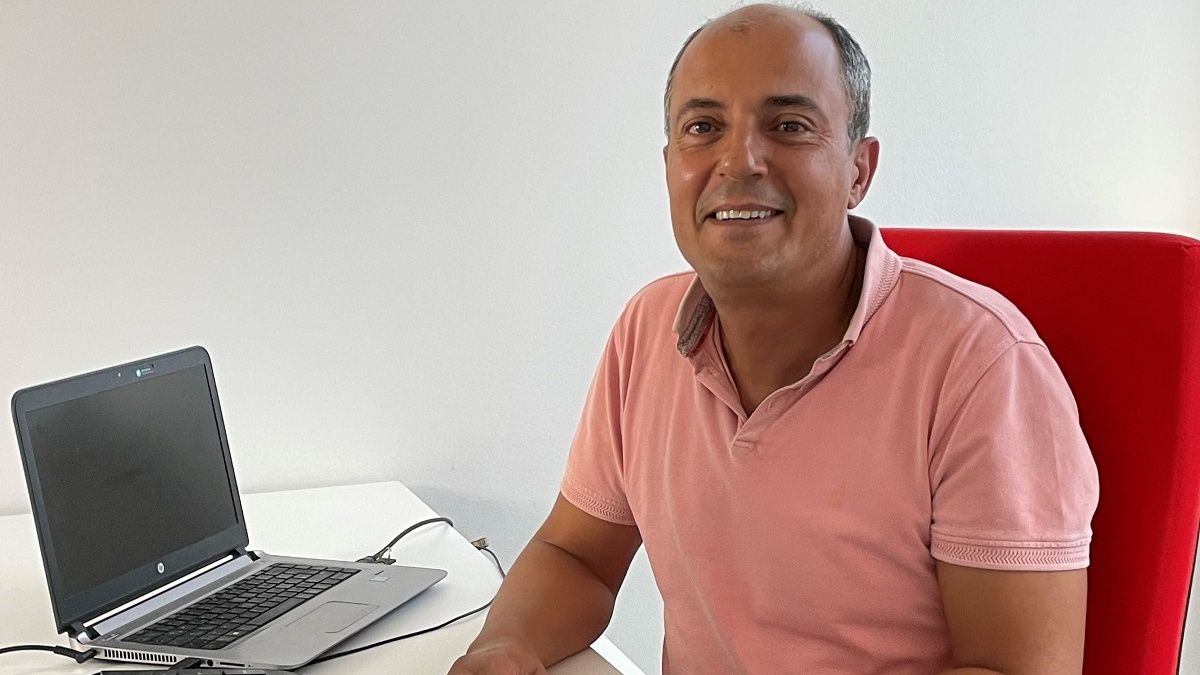"My vision: creating innovations for people"

think tank founder Mohamed Chergui in an interview
When did you first think about founding your own company?
The idea came to me during my student days in Germany. At that time, a fellow student and I updated all the programmes on a company’s computers at night by going from computer to computer with a CD. That was good for earning money, of course, but we also thought about how we could do it better. That’s when we came up with the idea of networking the world together to help people do their work. That made the direction I wanted to go in clear: new technologies and IT. My diploma thesis was about how to install software once, deploy it and then use it indefinitely.
You were offered a job at a consulting firm, but you preferred to become self-employed. Why?
I wanted to realise my own ideas and work innovatively right from the start. It was also important for me to combine the two worlds of Tunisia and Germany in order to create a synergy from the different mentalities. Initially, I and my colleagues started in Tunisia and worked with partners in Germany. We first wanted to take time to strengthen the bridge to Germany and adapt the structures in both countries, and then scale the business with the resources in Tunisia. It became clear that it is important to establish a presence in Germany as a window to Europe. Think tank Business Solutions AG was then founded in December 2002.
What were the first years like?
In the first few years we were often something like the fire brigade. We were deployed wherever there was a fire, because we were set up from the beginning to be able to react quickly. In addition, we have always relied on the latest technologies. This is how we were able to convince customers like Osram and BMW of our merits and can now look back on almost 20 years of successful cooperation. Our first projects were, for example, the optimisation of the filling of ATMs as well as the reduction of returns of the Springer publishing house from 1,000,000 to 150,000 to 200,000 within one month with the help of AI.
What were tt's biggest successes in terms of innovation?
We developed an automatic news dispatcher for dpa. This was based on the first use of an XML database with keywording in Germany and was developed as part of a diploma thesis. Even today, many good ideas are generated in this way, as we still supervise three to four diploma students a year in Tunis.
We developed the first online grocery delivery service for Karstadt. However, we were ahead of time and it was not accepted by the customers. It was important for us to be able to expand our expertise in web applications. At Osram, we implemented the first digital asset management for video and image management back in 2002, which we still maintain. In the health sector, we helped to develop the health card.
To date, we also have a wealth of experience in banking finance, ranging from online transaction processing to risk analysis regarding money laundering. We have been supporting PlanetHome as a full-service provider in the field of real estate since 2011, and together we are developing a platform on which both real estate agents and prospective buyers can take care of everything related to the purchase of a house or flat.
In the automotive industry, we are broadly positioned, from the development of an electronic calculation model to the conception and implementation of a tool for testing car parts to collaboration on an application for agile process planning.
You mention the topic of agile here. For some years now, the think tank has been increasingly focusing on agility. What is agility for you?
Developing something is very difficult because you have to react quickly. We realised pretty soon that we had to coordinate at short intervals. To do this, we set ourselves internal deliveries every week, which were reviewed by the quality assurance team the following week. So basically we were already working agile there without calling it that. The change to an agile organisation was therefore only the logical step for me on the path of digitalisation, which we have been following for a long time.
How do you see yourself as a boss?
For me, it is important to have connections, to work with people. The basic prerequisite for this is trust. I trust my team and let them decide a lot for themselves, because teamwork is very important to me. I don’t like prohibitions and I believe in flat hierarchies. The worst thing for me is when I influence someone to change. Everyone should be able to develop as they wish. First of all, there is no “must” with me, you can talk and discuss about everything.
What do you see in the staff?
Every person is special and the most important thing for me is that I perceive and value everyone as a person. I find it’s best to let people run themselves. That way I can learn from their experiences and their knowledge. Because everyone is innovative and can contribute in this way. That way, everyone benefits and a sense of “we” can develop. For me, think tank is much more than just a job; my employees are like a family to me.
What is your personal vision for the future?
I would like think tank to continue to establish itself as a think tank and contribute to simplifying people’s lives, bringing people closer together with the technologies that are available to us.